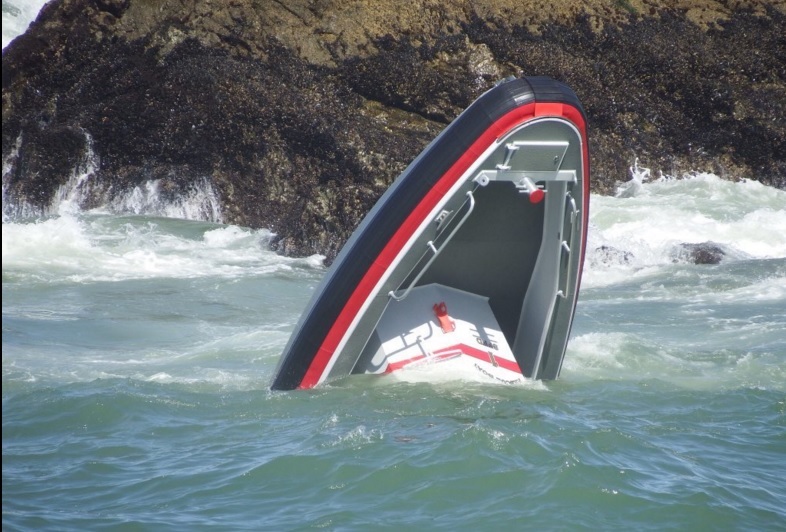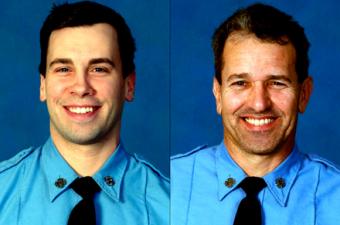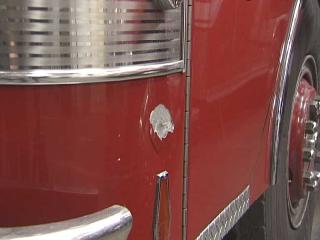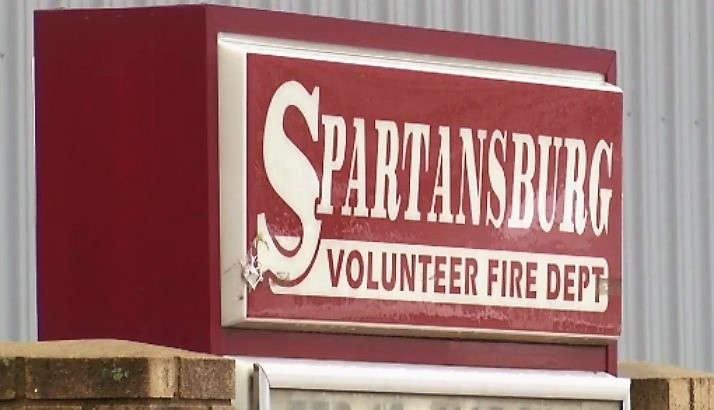DC 911 woke me at 3:30 this morning

DC’s 911 center, known as the Office of Unified Communications (OUC), woke me at 3:33 this (Sunday) morning with a phone call. More than 12-hours later I’m still processing the good and bad from that experience and am hoping writing it down will put it all in perspective.
The person calling from OUC wanted to know if I was still with the two people who were nose-to-nose on the side of a highway in Northwest. A little groggy, the one thing I was certain about is the two people weren’t in bed with me at that moment.
The other thing is that I was never WITH those people. If the call had been properly processed it would have said that I was just passing by. The other kind of important issue here is that I had witnessed this possible fight-in-the-making at approximately 1:30 a.m. That’s two-hours before the wake-up call.
Despite that criticism, my theory on why DC 911 was calling actually gave me somewhat of a good feeling. For about 90-minutes this morning DC 911 was down. People couldn’t get through. The call appeared to be diligence on the part of OUC in making sure no calls were missed when 911 was broken (another possibility is not as positive — it took two hours to dispatch the call to police).
Because the intentions seemed good, it’s easy to excuse the early morning call without really getting upset. Unfortunately it’s much of the rest of that 911 experience I find inexcusable. My initial call was an example of what has long been a major problem with OUC — call takers who don’t know the city.
My 911 call came as I was driving through the Foggy Bottom neighborhood heading home to Virginia. As I entered the I-66 tunnel going toward the Theodore Roosevelt Bridge there was a vehicle on the right shoulder. Standing outside the SUV on the driver’s side — almost in the right lane of traffic — were two men. They were arguing. That’s what prompted me to pick up the phone.
My first call hit a cell tower in Virginia and I was connected to Arlington County 911. That’s a common experience and I asked the call-taker to switch me to DC. The transfer was done immediately, but there was a problem — a busy signal.
Finding out later about DC 911 being down, I imagine the busy signal was a symptom of the outage. I hung up and called 911 again. This time it rang and the call went directly to DC.
The call-taker seemed courteous, to the point and ready to take my information. Unfortunately I found out quickly her ability to do the job was impacted by a lack of knowledge about major roadways and landmarks in the Nation’s Capital.
Telling the call-taker I was in the I-66 tunnel heading toward Virginia didn’t compute. She seemed to want an actual street address to put into the computer. This location is on an Interstate highway where there is no obvious street address. I tried to explain this was near the Kennedy Center. She asked if I meant I was in the 3rd Street Tunnel?
That question made me quite frustrated and the call taker may have sensed this disappointment in my reply. The 3rd Street Tunnel is about five miles away, closer to the center of town. The question showed me this 911 worker had never heard of this major roadway running through the District of Columbia. I-66 is not some obscure street. Every day it carries thousands of vehicles across the Potomac between Virginia and DC.
Just from my own calls to 911 through the years I know this geography problem is not an isolated situation. In addition, there have been many news stories about others who have experienced the same issue. The problem comes from the call-taker usually wanting a hundred block and street name to put into their computer, or at the very least an intersection. That isn’t always possible when you’re on a highway.
I have had many call takers through the years ask me the hundred block on the Teddy Roosevelt Bridge. In 1987, Washington Post columnist Richard Cohen wrote about being asked the hundred block on Rock Creek Parkway after coming upon a motorcycle crash. In 2011 I wrote about a story by then-WTOP Radio reporter Mark Segraves of a nurse trying to get help to the scene of a deadly collision on Military Road above Beach Drive. When that one didn’t compute and the call taker wasted 14-minutes trying to figure it out, the 911 director told Mark it was a glitch in the software. As it was in 1987, 2011 and is now, the glitch is not in the computer aided dispatch system but in the training of those working at the 911 center.
My first complaints about DC 911 go back to 1979. That’s when I began doing traffic reports for radio stations in DC and found myself calling in many incidents. In those days it was particularly difficult trying to explain to 911 the location of an incident on the Southeast/Southwest Freeway.
In the 1980s, WTOP Radio traffic reporter Bob Marbourg and I brought this up in meetings we had with DC police officials, including Assistant Chief Ike Fulwood, who later went on to become chief of the Metropolitan Police Department (MPD). Back then 911 was not a separate agency and was run by MPD.
We’re now getting close to 40-years later and it’s obvious the 911 call-takers still struggle with basic DC geography. At least I have a pretty good knowledge of the city’s roads and landmarks to help explain my location to DC 911. Imagine the conversation between a tourist unfamiliar with the city trying to call in an emergency and a 911 worker who is geography deficient.
Here are a few other observations from this morning’s 911 call. After hanging up with DC 911, Arlington 911 called me back. They were concerned about the original busy signal I received and offered to try to connect me again. That’s pretty efficient when you consider they were calling me back about a situation they knew wasn’t even in their jurisdiction.
The DC call-taker, while she didn’t understand my location and apparently didn’t put down some key information, began entering the call into the system immediately. About 20-years ago I recall expressing frustration to DC officials about call-takers who would waste time evaluating whether your information was 911-worthy before they began writing. When you reached those skeptics, you would have to repeat everything you just said so they could start to enter it into the computer. Also, the call-taker did her best to try and solicit descriptions of the men arguing and their vehicle, even though I was a very poor witness.
OUC has clearly trained their workers in some of the basics, but it’s long past time to teach them how to quickly get help when someone calls in an emergency on one of DC’s limited access highways and parkways.





